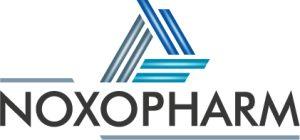
Posted: 3 October 2023
Innovative biotech company Noxopharm Limited (ASX:NOX) announces that further encouraging data from its Chroma™ platform has been presented at the American Association of Cancer Research (AACR) Special Conference on Pancreatic Cancer.
The latest in vivo research results from the company’s novel dual-cell CRO-67 preclinical drug candidate are being showcased by Noxopharm’s long-term collaborator, UNSW Sydney, as an oral and poster presentation at the prestigious conference currently taking place in Boston.
CRO-67 targets pancreatic cancer in a different and innovative way. The disease is especially difficult to treat because the tumours are surrounded by a dense barrier of cells that protects them from anti-cancer drugs, as well as from the body’s immune system. In addition, pancreatic cancer typically shows a large diversity of genetic variations between individual patients, intensifying the challenge of developing drugs that work across as many different varieties as possible.
This research follows work conducted in 2022 which showed that CRO-67 killed tumour cells as well as barrier cells in samples taken from patients who had their tumours surgically removed (ASX announcement 14/9/22).
The new results arise from a study that involved human pancreatic cancer tumour cells being implanted under the skin into mice. The mice were then treated with CRO-67 for 21 days, with tumour volume measured over this dosing period.
At the end of drug treatment, CRO-67 significantly reduced tumour volume in vivo by an average of 56.7% versus the untreated controls (p=0.0013).
Additionally, CRO-67 slowed down the rate at which the tumours grew by 48%. The median doubling time for the tumours treated with CRO-67 was 8.5 days, compared to 4.4 days for the untreated controls.
The pancreatic cancer tumour cell line with which the mice were injected was among those used in an in vitro cell lines study previously conducted by UNSW. In that study, CRO-67’s dual-cell activity demonstrated broad anticancer activity across a range of pancreatic cancer cell lines, in addition to strong potency against barrier cells.
The above results demonstrate that CRO-67 has now been shown to be bioavailable and biologically active in an animal model, and further supports the company’s confidence in the asset as a high priority as the development program continues.
Noxopharm CEO Dr Gisela Mautner said: “These results are encouraging because they demonstrate that CRO-67 is having a strong effect in different settings such as human cell lines and mice, as well as in patient explants. While we are also planning a further study to demonstrate efficacy in a different model, we are already moving ahead and developing the dosing and formulation for patients.
“All the studies we have performed are important elements to build out a robust data package that will be required for regulatory progression, and validates our ongoing research as we explore the potential of CRO-67 to be further developed as a treatment for pancreatic cancer.
“The disease is set to become the second leading cause of cancer-related deaths in the US by 2040, and has a very poor five-year survival rate of about 9% from the time of diagnosis. Very few new treatments have been released over the past decades, meaning there is an urgent need to develop innovative drugs and therefore a major opportunity for Noxopharm to make a significant contribution in this space.”



